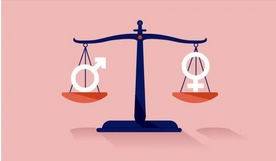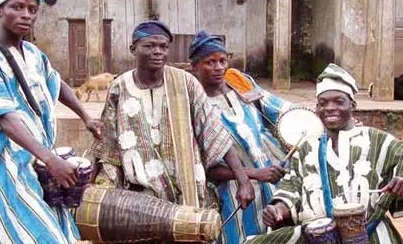
support@yorubalibrary.com
+2348073529208, 07038599574

Yoruba music has long been a medium for social commentary and change. Among the issues addressed through song is gender equality. Over the years, Yoruba musicians have used their art to highlight gender disparities, challenge stereotypes, and advocate for the empowerment of women. This article explores how Yoruba songs contribute to the discourse on gender equality and the impact they have on society.
Historical Perspective on Gender Roles in Yoruba Culture
Traditionally, Yoruba culture has been patriarchal, with distinct roles and expectations for men and women. However, women have always played significant roles in society, from being traders and farmers to serving as priestesses and political leaders. Yoruba music reflects these dynamics, often highlighting the contributions and struggles of women within the cultural framework.
Yoruba Songs that Promote Gender Equality
Yoruba musicians have used their platforms to advocate for gender equality by addressing issues such as women's rights, empowerment, and representation. Here are some key themes and examples of songs that contribute to this cause:
Empowerment and Strength
Songs that celebrate the strength and resilience of women are common in Yoruba music. These songs often portray women as powerful figures who overcome adversity and contribute significantly to society.
• "Lady" by Fela Kuti:
While initially controversial, Fela's "Lady" sparked discussions about women's rights and roles in society. It highlighted the need for acknowledging women's contributions and the importance of mutual respect between genders.
Challenging Stereotypes
Yoruba music also challenges traditional gender stereotypes by portraying women in diverse and dynamic roles. Songs often depict women as leaders, entrepreneurs, and change-makers, breaking away from conventional norms.
• "Ewa Na Re" by Salawa Abeni:
Salawa Abeni, a pioneer in the waka music genre, often sings about women's empowerment and independence. Her music encourages women to pursue their dreams and defy societal expectations.
Advocacy for Women's Rights
Many Yoruba songs explicitly advocate for women's rights and gender equality, addressing issues such as education, healthcare, and economic opportunities for women.
• "Woman" by Simi:
This contemporary song by Simi highlights the strength and beauty of African women while calling for gender equality and the recognition of women's rights.
The Impact of Music on Gender Equality
Yoruba music plays a significant role in shaping public perception and influencing societal attitudes toward gender equality. By addressing gender issues through song, musicians contribute to the broader conversation about women's rights and inspire positive change.
Raising Awareness
Music raises awareness about gender disparities and challenges listeners to reflect on their beliefs and attitudes. Through powerful lyrics and compelling melodies, Yoruba songs engage audiences and encourage critical thinking about gender issues.
Inspiring Action
Yoruba songs that address gender equality often inspire action by motivating individuals and communities to advocate for change. Music can unite people around a common cause and foster a sense of solidarity in the fight for gender equality.
Providing a Platform for Women
Yoruba music also provides a platform for women to express themselves and share their experiences. Female musicians use their voices to challenge inequality and inspire future generations of women to pursue their aspirations.
Conclusion
Yoruba songs play a vital role in addressing gender equality by highlighting women's contributions, challenging stereotypes, and advocating for change. As musicians continue to use their art to promote gender equality, Yoruba music remains a powerful tool for social transformation and empowerment. Through song, the Yoruba community can continue to push for a more just and equitable society where all individuals, regardless of gender, have the opportunity to thrive.

The unique styles of Yoruba Bata and Dundun dances…

The emergence of new age social media and impact i…